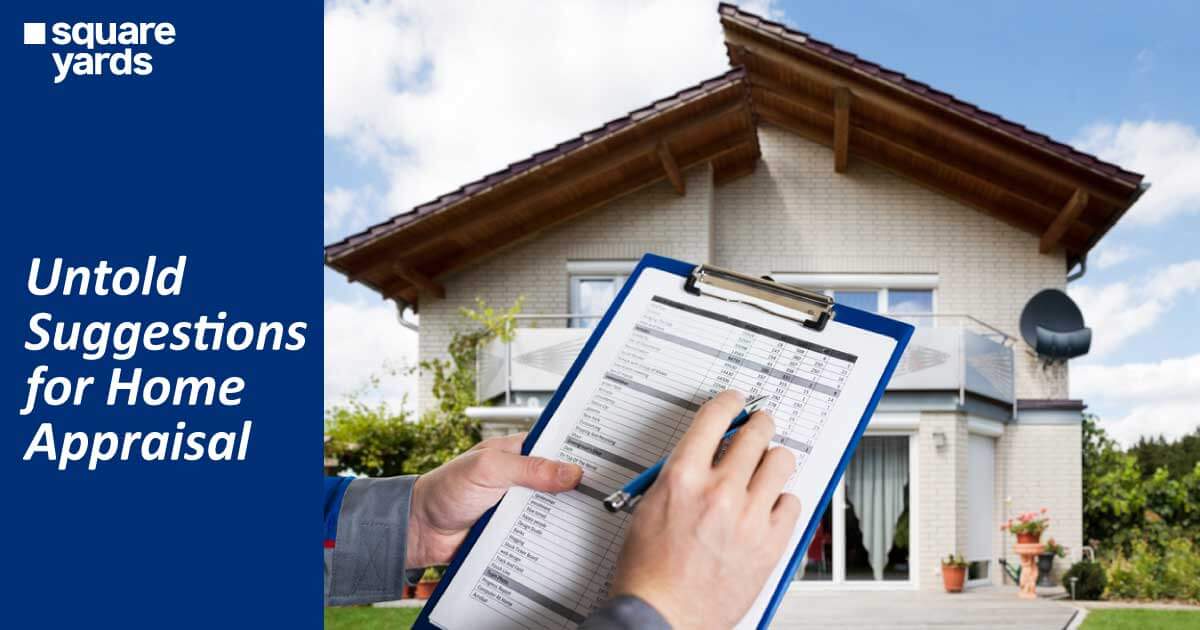Buying from the right estate type to financing options requires time and effort. The monetary aspect is the main hurdle to purchasing a residence. Furthermore, knowing how much a property is worth is vital, whether you are a seller or a buyer. Sellers will want to avoid excessive pricing or undervaluing their homes, while purchasers will want to guarantee that the property is priced correctly. But how is the value of a thing determined? How do you tell if that four-bedroom property in the city is an acceptable offer or if the seller is delusional? This blog will walk you through home appraisal in Canada real estate.
Home Appraisal in Canada and Its Example
A Home Appraisal evaluates the market worth of an individual’s property at a specific time. The primary goal of an appraisal is to assess the property’s fair market value. Besides, before a mortgage approval, lenders can verify whether the asset has sufficient collateral. Moreover, a licenced appraiser might come to your home and review it thoroughly inside and out. To decide what a potential buyer might pay in the current marketplace. However, analyses can be performed on numerous factors, such as
-
- Current trend: Instead of overpaying, sellers can know the reasonable price of the property by contacting any real estate agents or checking through online websites.
- Right Cost: Before approving a mortgage, lenders should be aware of the exact value of the property.
For better clarity, Let’s understand by an example,
Suppose you want to sell out your 3 BHK apartment. A professional appraiser will come to your residence to inspect the apartment’s condition. Moreover, they might look for recent sales of similar apartments in your region. If they find out about it, they will decide the cost around the recent sale; prices can be low or high depending on the apartment’s condition. Thus, the estimated market value will be decided after compiling all the information.
Home Appraisal Working Process

The house appraisal process is organised to assess a property’s fair market value. Appraisers play a significant role in dealings with real estate by analysing the residence’s features and condition and comparing it to similar properties in the region to ensure that estates are valued accurately, considering their true market value. When you apply for a house loan, the lending company will request a home appraisal to determine the worth of your property. The appraiser will gather data from various sources, including country records, Multiple Listing Services (MLS), and other pertinent resources. Moreover, they will use different methods to collect data, such as
-
- Inspection Approach: The appraiser begins by acquiring details regarding the subject property. This involves inspecting the home’s square footage, number of bedrooms and bathrooms, layout, location, and maintenance.
- Cost Approach: This approach helps calculate how much it might cost to rebuild the identical structure today while considering how old the residence is and how much its worth has declined. This also covers the value of the ground on which the structure rests.
- Comparative Market Analysis (CMA): The appraiser will conduct a comparative market analysis by identifying similar properties close to and currently for sale in the region. These comparables are used to estimate the issue’s property’s worth in the marketplace via its attributes, size, state, and selling prices.
What are the Buyer’s Options?
Buyers have numerous alternatives for home appraisals based on the results:
-
- Bargaining Cost: This is the most popular choice. Buyers could negotiate with the seller to reduce the selling price to the appraisal worth.
- Increase down payment: If financially viable, purchasers can raise their down payment to cover the difference between the cost of buying and the appraised value. Moreover, it lets buyers keep their initial investment while fulfilling lender criteria.
- Alternative finance option: Depending on the loan type, purchasers may consider options such as piggyback mortgages or seller funding to offset the distinction.
Avoiding Issues with a Home Appraisal in Canada
To avoid issues with a home appraisal in Canada, follow the following alternatives. The first option is to hire a real estate appraiser for your residence. For this reason, we’ve compiled a solution before selecting a qualified property appraiser. For example, before clicking and enrolling on a website provided to you by a friend or family member, double-check their information with the Appraisal Institute of Canada (AIC). The AIC is a credible source for details on local appraisers in the town or area. Professional house appraisers have one advantage: they have substantial education and are licenced in Canada. By contacting the AIC, you can access a large database of appraisers and focus your search depending on their experience. The entire real estate team, comprising your realtor, mortgage broker, or home stager, may have significant referrals you can verify on the AIC portal.
Is there any Difference between Rural and Urban Appraisals?
The location of an asset evaluation plays a crucial role in determining the residence’s overall value. Local marketplace dynamics, similar sales, income levels, and regional economic trends all substantially impact an appraisal’s integrity. However, Yes, there are differences between rural and urban appraisals. Rural communities have less comparable real estate and a more limited buyer/seller marketplace. This might make the evaluation procedure more challenging because there may be limited comparable assets against which to compare the appraised value.
On the other hand, urban appraisals have a more fluid market and multiple similar properties in the region, providing the appraiser with additional data points to evaluate the asset. Appraisers typically identify it easier to identify relevant equivalent sales in an urban region, which can lead to a more precise evaluation. As a result, valuing assets in an urban or rural setting might differ significantly. One critical feature in all instances is the requirement to conduct extensive research on the location and marketplace conditions to determine the worth of the real estate under appraisal effectively.
Who is Responsible for Paying Home Appraisal?
Formerly, the buyers are responsible for paying a home appraisal since the lender mandates it. Moreover, when an individual or buyer of an estate orders an anonymous appraisal, the valuation is paid for by the ordering party. However, The actual price will depend on the home’s position, square footage, and state. If your chosen home has features that need the appraiser to stay onsite for a longer period than normal, the fee may rise.
To Sum Up
Some individuals make judgements for each property independently. But, regarding Canada real estate investments, you can not judge the property by its look. Some ageing houses outperform others, where some homes are in more desirable spots than others. Some purchasers have enormous expectations when buying a home, but how can they trust somebody? Simply put, they can contact licenced home appraisals who guide them through trusted property, cost, location, and more. However, explore overlooked properties; they may bring you to your ideal differently!
Frequently Asked Questions (FAQs)
What do home appraisers look for Canada?
The appraiser takes into account a variety of characteristics, including the house's layout, age, condition, and position, as well as current sales of comparable properties in the neighbourhood. After gathering all the details, the appraisal will decide the overall value of the real estate.
How much does a home appraisal cost in Canada?
Our home appraisal prices typically range from CAD 700 to CAD 1,500, depending on the planned use of the evaluation. The assignment is performed by several factors, including the property's size, distinctiveness, position, and the appraisal's particular needs.
Is appraisal value close to market value?
Market value is significantly more unpredictable than appraisals and considers factors such as the marketplace. This involves whether it is a buyer's or seller's consumers, the overall economy, and the area's desirability. Property upgrades are, of course, an additional method to boost the market price of a property.
How do you determine the fair market value of a house in Canada?
The Canada Revenue Agency's determined explanation of fair market value is The largest cost, declared in terms of funds, that an asset would bring, in a free and unhindered market, among an interested purchaser and a willing seller that is both educated, updated and wise and who are acting irrespective of each other.



































